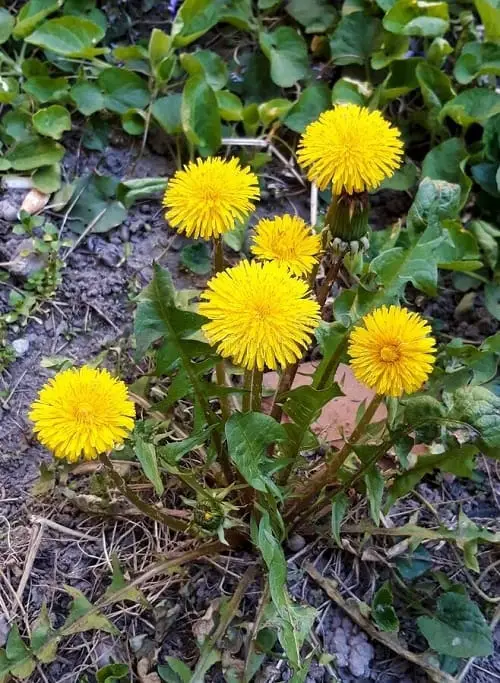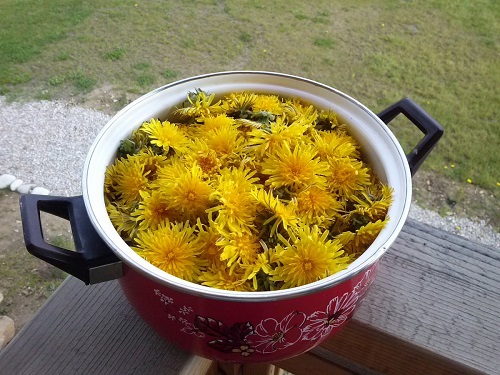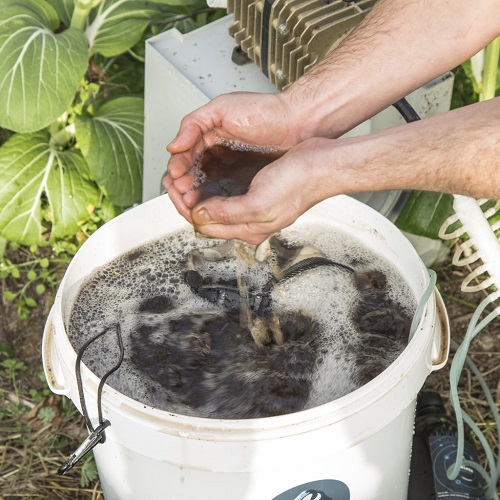Learn about the Best Dandelion Fertilizers You Can Use! It is a simple and effective way to nourish your plants for almost free!
Do you know that you can transform dandelions from weeds into nutrient-rich fertilizers for your plants? They can be a great way of providing an organic, affordable, and abundant source of potassium for your garden. Let’s have a look at the Best Dandelion Fertilizer Recipes!
Check out Dried Banana Peel Powder Fertilizer at Home for Any Plant
What is Dandelion?
 Dandelion (Taraxacum officinale) is a flowering plant species in the family Asteraceae. It is native to Europe and Asia but has since been naturalized throughout much of the world. They are known for their bright yellow flowers and long, white, fluffy seed heads, which are dispersed by the wind.
Dandelion (Taraxacum officinale) is a flowering plant species in the family Asteraceae. It is native to Europe and Asia but has since been naturalized throughout much of the world. They are known for their bright yellow flowers and long, white, fluffy seed heads, which are dispersed by the wind.
They are also a valuable food source for many wildlife species and have been used for medicinal purposes for centuries. Also, this amazing weed is edible.
Check out 19 Best Edible Weeds You Didn’t Know You Could Eat
Nutrient Profile of Dandelion
- Calories: 20
- Carbohydrates: 4 g
- Fiber: 3 g
- Protein: 1 g
- Fat: 0 g
- Vitamin A: 8% of the RDI
- Vitamin C: 12% of the RDI
- Vitamin K: 585% of the RDI
- Calcium: 3% of the RDI
- Iron: 4% of the RDI
- Magnesium: 3% of the RDI
- Potassium: 5% of the RDI
- Manganese: 5% of the RDI
Are Dandelions Good Fertilizer?
Dandelions’ extensive roots aerate hard-packed soil and reduce erosion. Their deep taproot also brings up valuable nutrients like calcium. Using them as fertlizer can make it all available to other plants, acting as a natural fertilizer for your lawn.
Dandelion Fertilizers are a great source of potassium, nitrogen, and other nutrients that help promote healthy plant growth.
Check out 11 Effective Weeding Tips for a Weed-free Garden
Why Make a Dandelion Tea Fertilizer?

The dandelion tea fertilizer is high in potassium, which is essential for healthy plant growth, and can also provide other trace minerals like magnesium and iron.
This Dandelion Fertilizer can be used for various plants, including vegetables, herbs, ornamental plants, and flowers. With regular use, you will see improved plant health, better blooms, and more robust growth.
This herb pulls iron, calcium, and potassium from the earth into its foliage. After dying and decomposing, dandelions leave mineral-rich organic matter that nurtures the soil.
Dandelion Tea Fertilizer Recipe
Dandelion tea fertilizer is a natural and inexpensive way to nourish your plants. Here is how to make it:
Things You’ll Need to Make this Dandelion Fertilizer:
- Fresh dandelion flowers and leaves
- Water
- A large container
- A cheesecloth or fine mesh strainer
Direction:
- Pick a large handful of fresh dandelion flowers and leaves, making sure to avoid any plants that have been treated with pesticides.
- Fill a large container with a gallon of water.
- Add the dandelion flowers and leaves to the water and steep them for 3-5 days.
- Keep the container in the dark area where the direct sun doesn’t reach.
- When the container starts to emit an unpleasant odor due to the fermentation process, it indicates that the fertlizer is ready. Strain the mixture and dilute it with water in a 1:5 ratio before using it to water both your flower and vegetable gardens.
Note: Don’t dispose of used dandelions; instead, utilize them as mulch. Spread the dandelions around the soil surrounding trees, shrubs, and plants. As they decompose, they’ll add extra nourishment to your fruit plants.
Read About Edible Blooms for Nutritional Benefits
Dandelion Compost

It is also one of the Best Dandelion Fertilizers You Can Use.
- Collect dandelions, including the roots, and chop them into small pieces.
- Add chopped dandelions to your compost bin and other organic materials like food scraps, leaves, and grass clippings.
- Let the compost break down for several months before using it as fertilizer for your plants.
Conclusion
Dandelion Fertilizers are a great source of fertilizer for your plants, as they contain nitrogen and other essential nutrients. There are several ways to use Dandelion Fertilizers, including adding them to your compost pile, using a dandelion tea to water your plants, and chopping them into small pieces to add to your soil.
Regardless of the method you choose, make sure only to use dandelions that have grown in an area free from chemicals to ensure that your plants get the best and safest fertilizer possible.



